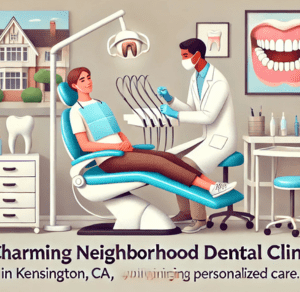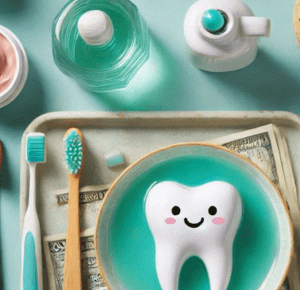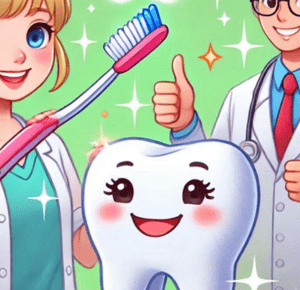Dental crowns are a standard restorative treatment used to strengthen and protect damaged teeth. They are considered a reliable solution, but many misconceptions surround this procedure. There are many professionals in Lansing, MI dental practice who provide patients with dental crown solutions. So, let’s dispel some common myths and uncover the truth about dental crowns.
What are dental crowns?
A dental crown is a tooth-shaped cap that covers the damaged part of the tooth to restore its shape, size, and strength. It is required after a root canal to repair a cracked tooth or cover a large filling.
Crowns can be made from different materials, including metal, porcelain, or a combination of both. Porcelain crowns match the natural look of your teeth, while metal crowns are typically considered a strong option.
The process of getting a crown involves the preparation of the tooth, taking an impression for the lab procedures to create a crown, and then cementing it in place. So, with proper care, dental crowns can last for many years.
Myth 1: Dental crowns are painful
Fact: Modern dentistry has advanced significantly, and procedures like crown placement are designed to be comfortable for the patient. Local anesthesia is used to numb the affected area, reducing the discomfort during the process. You might experience some sensitivity after any procedure, but over-the-counter pain relievers can effectively manage it.
Myth 2: Crowns look unnatural
Fact: This is a common concern but is unfounded. Dental technology has evolved over the years, and crowns can now be crafted to match the color and shape of your natural teeth seamlessly. Porcelain crowns are particularly known for their natural appearance. Hence, they can give an individual a natural look.
Myth 3: Crowns are a sign of poor oral hygiene
Fact: This is a false statement. Dental crowns require necessary care to save a tooth that has been damaged due to injury, decay, wear, and tear. They are a restorative treatment, not a reflection of your oral hygiene habits. Regular dental checkups and proper home care are essential for maintaining good oral health regardless of whether you have crowns or not.
Myth 4: Crowns are expensive.
Fact: The cost of crowns may vary according to the materials used and the complexity of the procedure. However, it is important to remember that a crown can save a tooth and prevent more extensive dental work in the future. There are many dental insurance plans that cover a portion of the cost, so you can easily choose them as a treatment option.
Myth 5: Crowns are permanent
Fact: While dental crowns are designed to be durable, they are indestructible. They can chip, crack, or fall off with time, especially if you grind your teeth or bite down hard objects. Regular dental checkups are vital to monitor the condition of your crowns and address any issues promptly.
Myth 6: Crowns can prevent cavities.
Fact: Dental crowns protect the remaining tooth structure, but they cannot prevent cavities. It is vital to maintain good oral hygiene practices, including brushing twice a day, flossing daily, and regular dental checkups even after attaining crowns.
Myth 7: Crowns can work for years!
Fact: A professional dentist will cement the crown on your teeth properly, but you must take proper care by brushing twice daily, maintaining good oral hygiene, and avoiding hard edibles to make them work for years.
Discovering the truth of dental crowns
If you have any concerns or questions about dental crowns or need restorative dental care, schedule a consultation with an experienced dentist. They can provide you with guidance, accurate information, and personalized treatment recommendations to help you achieve a healthy and beautiful smile.






